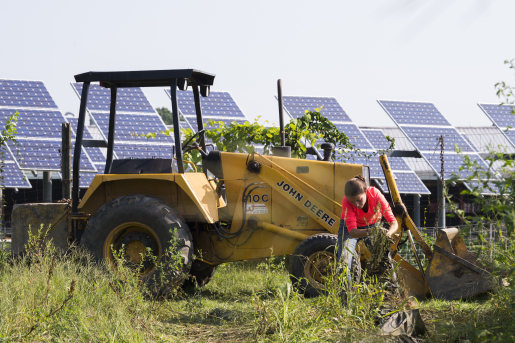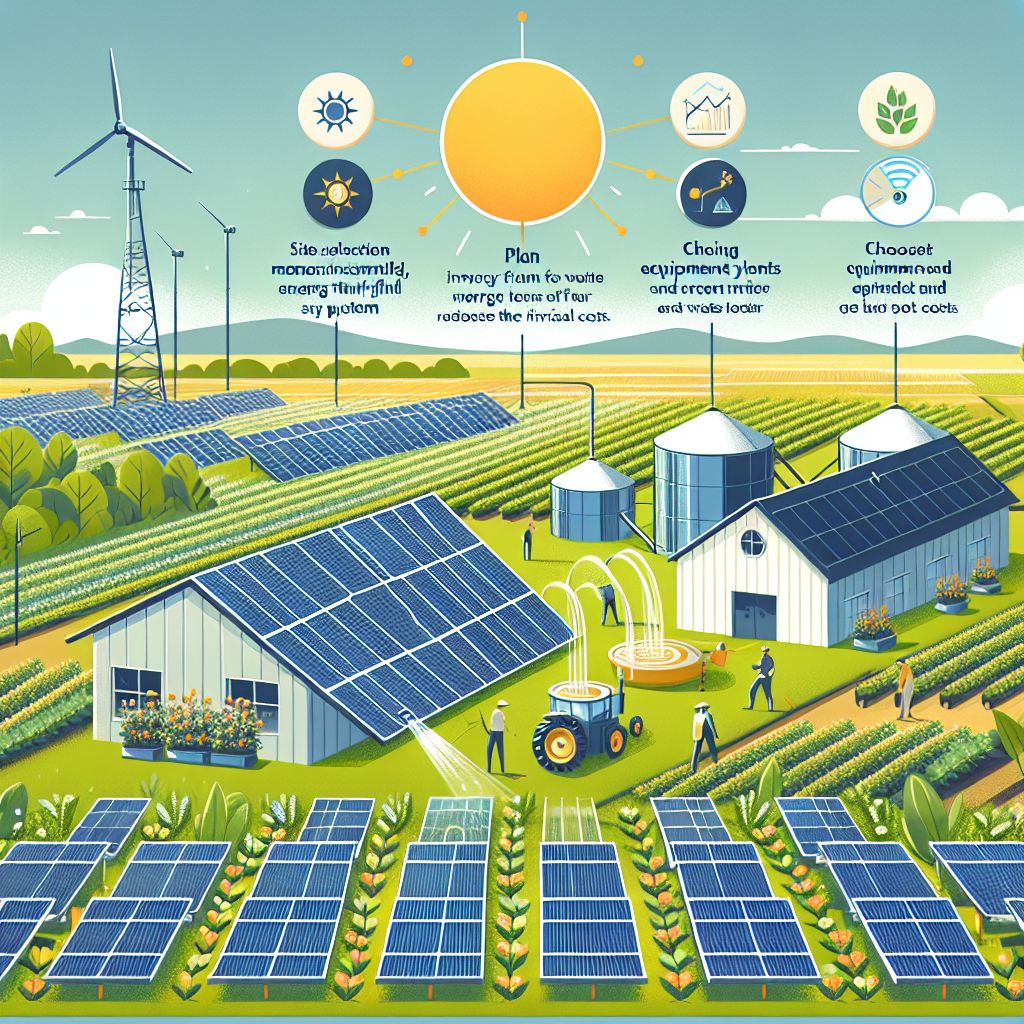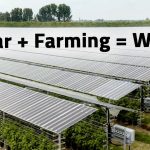Imagine transforming your farming operations with a system that not only saves you money but also helps the environment. Sounds too good to be true?
It isn’t. Solar-powered irrigation offers exactly that. As you strive to make your agricultural practices more efficient and sustainable, this innovative solution could be the game-changer you’ve been searching for. In this guide, we’ll explore the impressive benefits of harnessing solar energy to irrigate your fields and walk you through the setup process, step by step.
Whether you’re a seasoned farmer or new to the world of agriculture, understanding this technology could revolutionize your approach to farming. Are you ready to discover how you can reduce costs while boosting productivity? Let’s dive in and unlock the potential of solar-powered irrigation for your farm.

Benefits Of Solar-powered Irrigation
Solar-powered irrigation offers cost savings and reduces carbon footprint. It ensures reliable water supply for crops. Efficient and sustainable, it improves agricultural productivity while supporting environmental health.
In today’s rapidly changing world, efficient resource use is vital, especially in agriculture. Solar-powered irrigation presents a sustainable solution for farmers looking to save costs and protect the environment. Have you considered how harnessing the sun’s power could transform your farming practices?Environmental Impact
Switching to solar-powered irrigation significantly reduces carbon emissions. Traditional irrigation systems often rely on fossil fuels, which contribute to pollution. By choosing solar, you lessen your environmental footprint, promoting cleaner air and healthier ecosystems.Cost Savings
Imagine slashing your electricity bills while maintaining efficient irrigation. Solar systems utilize free energy from the sun, reducing reliance on costly electricity or diesel. Over time, the initial investment in solar panels pays for itself, leaving you with more funds for other farming needs.Reliability And Independence
Solar-powered systems provide consistent irrigation without dependency on erratic power grids. Even in remote areas, where electricity access is limited, solar panels can function effectively. You gain autonomy, ensuring your crops receive water when they need it most.Scalability
Solar-powered irrigation systems are adaptable to different farm sizes. Whether managing a small garden or a large field, these systems can be tailored to meet your specific needs. This flexibility allows you to expand your irrigation capacity as your farm grows.Low Maintenance
These systems are designed for durability with minimal upkeep. Regular cleaning of solar panels and periodic checks ensure they operate efficiently. This means less time worrying about maintenance and more time focusing on what you love—farming. Embracing solar-powered irrigation not only benefits your farm but also supports a broader movement towards sustainable agriculture. Are you ready to make the change and reap the rewards?
How Solar Irrigation Systems Work
Solar-powered irrigation offers an efficient way to water crops. It uses energy from the sun. This system is becoming popular among farmers. It saves money and is eco-friendly. Understanding its working can help in making informed decisions.
How Solar Panels Generate Electricity
Solar panels convert sunlight into electricity. They use photovoltaic cells. These cells absorb sunlight. This creates an electric current. The current powers the irrigation pump. It is a simple and clean process.
Role Of The Pump In Irrigation
The pump is vital in the system. It moves water from the source to the field. Solar energy powers the pump. This ensures a steady supply of water. It is effective during sunny days.
Water Storage And Distribution
Water is stored in tanks. This ensures availability during cloudy days. Pipes distribute water to the crops. The system can be adjusted. This helps in meeting the specific needs of different crops.
Control Systems For Efficiency
Control systems manage water flow. They ensure optimal use of resources. Timers and sensors are common tools. These help in scheduling irrigation. It reduces water wastage and ensures efficiency.
Maintenance Of Solar Irrigation Systems
Regular maintenance is important. Cleaning panels ensures efficiency. Checking connections prevents issues. Proper care extends the system’s life. It ensures consistent performance over time.
Implementing Solar Solutions In Agriculture
Implementing solar solutions in agriculture is gaining popularity. Farmers use clean energy for irrigation. It saves costs and promotes sustainability. This approach benefits both small and large farms. Solar-powered irrigation is practical and eco-friendly. Understanding its benefits and setup helps optimize agricultural practices.
Understanding Solar-powered Irrigation Systems
Solar-powered systems use sunlight to pump water. They include solar panels, a pump, and a controller. Panels convert sunlight into electricity. The pump moves water from the source to the fields. Controllers manage the system’s operations efficiently. These systems are reliable and require minimal maintenance.
Solar-powered irrigation reduces energy costs. It relies on free and abundant sunlight. This method supports sustainable farming practices. It lowers the carbon footprint of agriculture. Solar irrigation is ideal for remote areas. It provides water access without needing grid electricity.
Steps To Set Up Solar Irrigation
Start by assessing the farm’s water needs. Determine the amount of water required daily. Select appropriate solar panels based on energy needs. Install the panels in a sunny location. Connect them to the pump and controller. Ensure all parts are compatible for seamless operation. Regularly check the system for efficiency and function.
Choosing The Right Equipment
Choose high-quality solar panels. They should be durable and weather-resistant. Select a pump that matches the farm’s water requirements. Ensure controllers are user-friendly and reliable. Proper equipment enhances system performance. Consult experts for equipment recommendations.
Maintenance And Monitoring
Regular maintenance keeps the system efficient. Clean solar panels to remove dust and debris. Inspect the pump and controller for any faults. Monitor water flow and energy consumption. Early detection of issues prevents costly repairs. Schedule routine checks for optimal performance.
Challenges And Considerations
Adopting solar-powered irrigation offers many benefits. Yet, it brings challenges and considerations. Understanding these can help avoid issues. Proper planning ensures smoother operations.
System Compatibility
Solar systems must match your irrigation needs. Check power requirements of pumps. Choose panels that provide adequate energy. Compatibility is key to efficient performance.
Initial Investment
Solar irrigation systems can be costly upfront. Budget planning is essential. Consider long-term savings in energy costs. Initial expenses may be high but pay off over time.
Weather Dependence
Solar power depends on sunlight. Cloudy days affect energy generation. Have backup systems ready. Ensure irrigation continues even in low sunlight conditions.
Maintenance Requirements
Solar systems need regular checks. Dust and debris lower efficiency. Clean panels frequently. Inspect connections and batteries often. Proper maintenance ensures longevity.
Technical Expertise
Setting up solar irrigation requires knowledge. Hire skilled technicians. Ensure correct installation. Proper setup prevents future complications.
Water Source Availability
Ensure access to water sources. Solar systems need consistent water supply. Plan your irrigation routes. Check water availability before installation.

Conclusion
Solar-powered irrigation offers many benefits for farmers. It reduces energy costs. It promotes sustainable farming practices. The setup process is straightforward and efficient. Choosing the right components is key. With proper maintenance, systems last long. Farmers gain independence from unreliable electricity.
It ensures consistent water supply. This boosts crop yields and profits. Solar irrigation is a smart choice. It supports eco-friendly agriculture. Both the planet and farmers benefit. Embracing this technology can transform farming practices. It’s a step towards a brighter, sustainable future.
Invest in solar irrigation today. See the positive impact on your farm.



